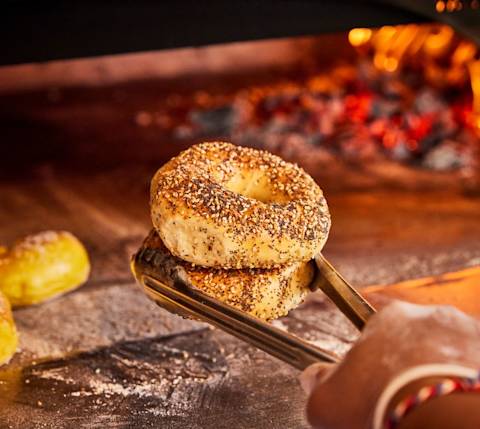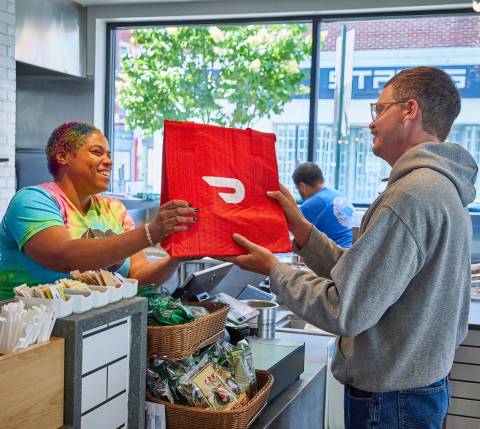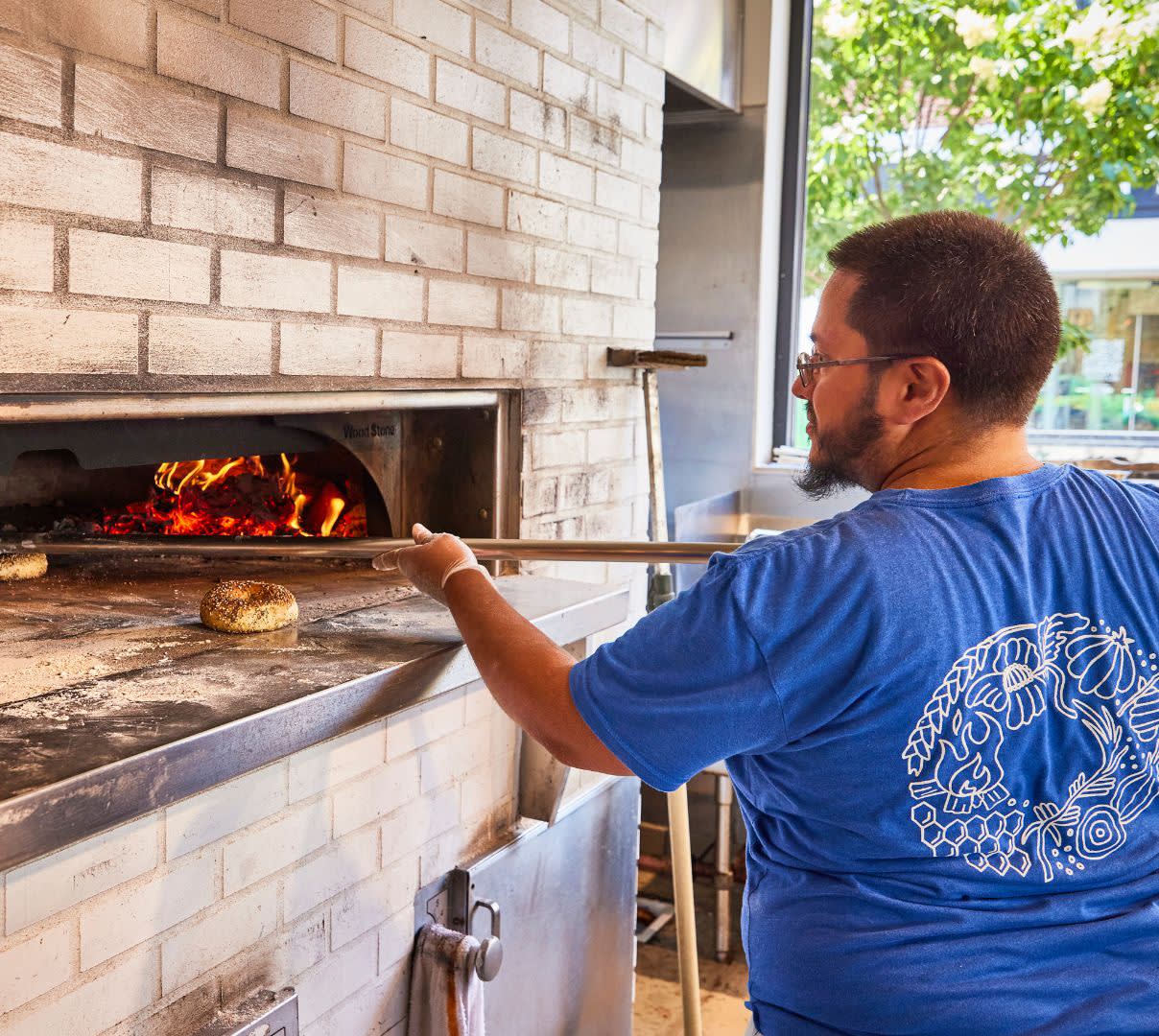As the Spread Bagelry website states, “Not all bagels are created equal.”
Founded in 2010 in Philadelphia, the popular bagel brand is one of the first Montreal-style bagel companies in the US, with 13 locations and four more expected by the end of 2023.
Spread Bagelry’s founder, Larry Rosenblum, regularly brought bagels back from his trips to New York to share with friends and family back home. But on a fateful visit to Montreal, he discovered a new style of bagel – one that he was excited to introduce to others. “He became kind of the bagel king of Philadelphia,” says Spread’s CEO Jamie Schrotberger.

When we opened up our Rittenhouse location, the excitement for a different bagel company brought a lot of people from the neighborhood to that location. We had lines around the block every single day of the week for a couple of years.
The Montreal difference
Several qualities differentiate the Montreal-style bagel from its more well-known New York counterpart. Smaller and thinner, the bagels are boiled in honey water and malt for extra sweetness and chewiness, then baked in a wood-fired oven. Also, the hole of the Montreal bagel is larger and the texture is denser.
Sourcing high-quality local ingredients whenever possible, Spread Bagelry bakes its bagels on-site, also braising their own brisket and roasting their own chicken and turkey. “We take an old-world craft – making bagels – and bring it to the 21st century with a more modern experiential component, where you see the bagels made right in front of you, using the highest-quality ingredients,” says Schrotberger.

The in-store process of baking the bagels is one thing that differentiates Spread Bagelry. “We're trying to be thought-provoking in terms of what we think restaurants will be in the future, which is focused on experiential store experience as well as hospitality,” Schrotberger explains.
A good proof point for this is the brand’s expansion into larger retail facilities. While company growth this year is tracking at 70% this year, square footage growth is projected at 110%. “We're really trying to maximize what we have in the store – the seating and the interior design,” he says.
Spread Bagelry continues to build community through an intentional focus on hospitality that is baked into the culture of the brand.

A core mission is to spread warmth to every customer that comes through our door. People love bagels. Mostly it's a nostalgic factor. But secondly, it brings people together. We build our restaurants in strong communities, and we like to be the cornerstone of those communities – providing a great alternative for a better fast-casual category, but also a friendly face.
Third-party delivery boosts customer satisfaction and incremental sales
While spreading warmth to its customers happens through person-to-person interactions, delivery is a key component of Spread Bagelry’s customer relationship — as well as a boost to its bottom line.

DoorDash is incremental. The additional revenue that we receive from DoorDash is very helpful. Not only does it provide more sales, but the incremental margins on those sales are a lot higher because we've already covered our fixed costs with our regular business.

Delivery represents a significant portion of sales, and plays a key role in the brand’s appeal with Gen Z and Millennial customers. “Without ordering platforms, we would virtually be ignoring a generation or two,” Schrotberger says. “If we turned off third-party, 35% of our business would immediately go away.”
While they work with several third-party delivery apps, DoorDash represents the largest share, making up 25% of Spread Bagelry’s total sales revenue.
25% of total sales
come from DoorDash orders.
up to 55% margins
for DoorDash orders on busy days.
Another reason Spread Bagelry likes DoorDash is for its high check averages that add to profits. “DoorDash has a higher check average than our normal business,” says Schrotberger.

We do have better margins as a result because our labor cost is already fixed and our rent is fixed. Adding 25% more revenue allows us to drive higher margins and higher incremental margins for our business. They can get as high as 55% on some of our busiest days. So we are a big proponent of DoorDash.
Building an omni-channel customer experience
A consistent omni-channel customer experience is important to Spread Bagelry. “It allows customers to interact with the brand how they want to,” says Schrotberger.
As part of this mission, Spread Bagelry’s prices are consistent no matter the channel. “When it comes to pricing, I think that a uniform pricing model is the best,” he explains. With the prices being the same on all channels, Spread Bagelry gets to keep those margins to invest in other aspects of the business, like larger stores.
“We want to have clarity and trust with the consumer that we are doing the right thing no matter how they're coming to us. We don't have different pricing models or different avenues of interacting with our brand. So for people walking in, it's the same price as ordering from home through DoorDash. That allows us to hold on to that customer throughout their daily routine, no matter what.”
Delivery helps to spread the bagel love
Spread Bagelry continues to grow in popularity and in locations across the Philadelphia area and beyond. It’s no wonder it has become one of the most sought-after bagel spots, offering everything from traditional Philly favorites like Chicken Cheesesteak to more contemporary offerings like Avocado Toast.
Delivery from DoorDash is available at all of its locations, helping the brand continue to solidify its strong relationship with its customers, wherever they are. “DoorDash does help provide our customers the ability to use us in many different ways, whether it be in-store or delivery. But it also allows us to hold on to that customer throughout their daily routine, no matter what it is.”
The bagel brand may even look into franchising in the future if its current growth trajectory continues.
If you’re ready to grow your omni-channel customer experience with a little help from DoorDash, sign up today.





